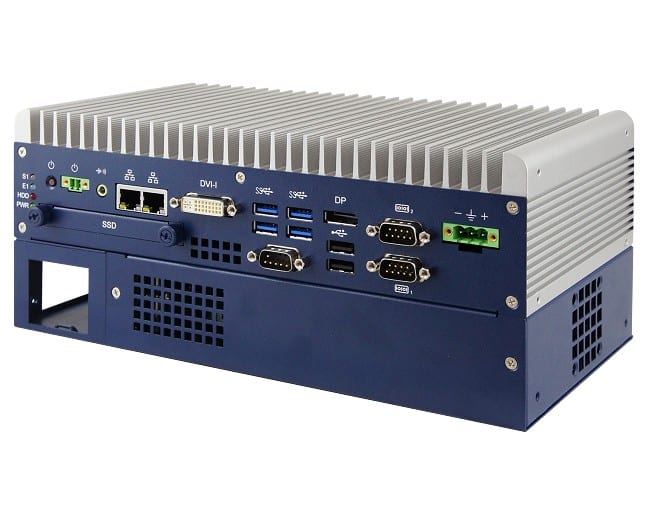
Rugged Computers vs. Industrial Computers
Posted on July 1, 2024
Industrial computers are supposed to be the computing option of choice for industrial applications, but then Rugged PCs are a thing too. How exactly do they differ?
Flexibility vs Specialization
Industrial computers are an umbrella term that includes any embedded computers designed to power industrial applications. This makes the category very broad, including very different types of computers ranging from high-performance server systems to simpler panel PCs meant to act as Human-Machine Interfaces (HMI).
But Industrial settings aren’t always conducive to electronics. Sometimes systems need to be deployed in harsher conditions – a moving vehicle, sweltering heat of the outdoors, or even in the middle of an active manufacturing facility.
That’s where Rugged computers come in. As the name makes it clear, a rugged computer is, well, rugged. It is designed to withstand extreme operating conditions, be it drastic temperatures, mechanical shocks, or even fluctuating power.
Temperatures High and Low
Computers, like most electronics, are meant to ideally function in a very narrow temperature range. In many scenarios, however, these ideal temps are impossible to guarantee.
Heat is an obvious problem – even home PCs tend to overheat when juggling heavy workloads, and industrial computers deal with very demanding tasks. And that’s before you factor in high-heat environments in factories or outdoor deployments, where no form of active cooling is available.
But extreme heat isn’t the only possible problem. Many PCs need to be deployed in deep freezing or refrigeration units where the extreme cold can kill a computer just as easily.
A rugged system is needed to survive in these applications. How it achieves it is two-fold: first, it eliminates mechanical parts like fans in favor of passive fanless cooling. This reduces the failure rate while allowing it to dissipate its heat efficiently.
Second, a rugged PC uses components specifically rated for these non-standard temperatures. This, in combination with its sealed chassis, ensures it keeps functioning even at sub-zero temperatures.
Vibration Resistance
Installing embedded PCs on unsteady platforms is another difficult undertaking, as the vibrations and impacts can damage components or dislodge them internally. Yet such applications are very common, with in-vehicle systems and industrial automation computers routinely dealing with such challenges.
To make a system immune to physical jolts, it has to eliminate all loose, unsecured, or moving parts. A standard computer is assembled with a lot of space between the components, to make it easy to access and change parts. It has an active fan, often a whirring hard drive, besides all the cabling.
All of this has to go. A rugged computer is very carefully designed to have all components fit snugly in place. Cables are minimized, if not entirely eliminated, and the chassis itself is grooved with fins to act as a fanless cooling system. Solid State Drives (SSDs) are used instead of traditional hard disks as well, completely removing any moving parts within the computer.
A rugged PC like this also sports a sturdier chassis and more durable components, letting it take mechanical shock without failing. Only then can it be suitable for deployment on vehicles or active machinery.
Why Not Choose Rugged Computers For Everything?
We have seen how rugged computers boast of better durability and reliability than standard industrial computers. This begs the obvious question: why not just use rugged computers for every industrial application?
The expense, mostly. Rugged computers use specialized components and engineering, making them much more expensive than a usual embedded PC.
And for most applications, these advanced features aren’t even necessary or useful. An industrial computer working as a data server or a billing system does not need to be rugged. In fact, a rugged design would prevent these computers from being easily upgraded.
This is why rugged systems are only preferred for applications where the operating conditions are too severe for normal PCs to function. There the extra cost ends up saving you on potential repair bills due to a rugged computer’s longevity and reliability.
Check out Global’s Rugged PCs and Industrial PCs.
